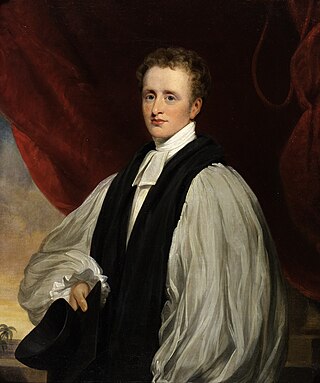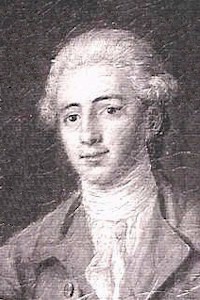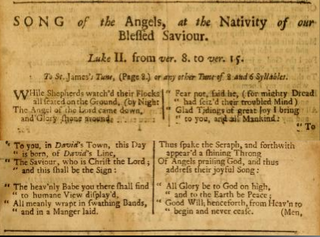Erik Reginald Routley was an English Congregational churchman, theologian and musician and arguably the most significant hymnologist of the 20th century. His nearly 40 books on theological thought and music of the Christian church are renowned. Raised in Brighton in a Congregational family, he spent his formative years at Lancing College in West Sussex. In 1936 he received an exhibition to Magdalen College, Oxford and afterward ministerial training at Mansfield College, Oxford. Ordained in 1943, Routley held pastorates in Wednesbury and Dartford before returning to Mansfield in 1948 as Chaplain, Lecturer, Librarian and Director of Music. In 1953, he was named to the Mackennal Chair of History. It was during these years that he became visible as an historian and hymn expert. He was also Chaplain of the Oxford Congregationalist Society and left a significant positive imprint on those he worked with. He joined the Hymn Society of Great Britain and Ireland in 1943 and became Editor of the Bulletin, their quarterly newsletter, for 27 years. He also wrote regularly for The British Weekly and the Congregational Monthly. His Oxford DPhil thesis (1951), The Church and Music: An enquiry into the history, the nature and scope of Christian judgement on music became the source for much of his writing for the rest of his life.

"Christ the Lord Is Risen Today" is a Christian hymn associated with Easter. Most of the stanzas were written by Charles Wesley, and the hymn appeared under the title "Hymn for Easter Day" in Hymns and Sacred Poems by Charles and John Wesley in 1739. The hymn eventually became well known for the "Alleluia" sung as a melisma after each line, which was added by an unknown author, probably to fit the commonly used hymn tune, "Easter Hymn". It remains a traditional processional hymn on Easter Sunday.

"Eternal Father, Strong to Save" is a British hymn traditionally associated with seafarers, particularly in the maritime armed services. Written in 1860, its author, William Whiting, was inspired by the dangers of the sea described in Psalm 107. It was popularised by the Royal Navy and the United States Navy in the late 19th century, and variations of it were soon adopted by many branches of the armed services in the United Kingdom and the United States. Services who have adapted the hymn include the Royal Marines, Royal Air Force, the British Army, the United States Coast Guard, United States Marine Corps and the United States Space Force, as well as the navies of many Commonwealth realms. Accordingly, it is known by many names, variously referred to as the Hymn of His Majesty's Armed Forces, the Royal Navy Hymn, the United States Navy Hymn, and sometimes by the last line of its first verse, "For Those in Peril on the Sea". The hymn has a long tradition in civilian maritime contexts as well, being regularly invoked by ship's chaplains and sung during services on ocean crossings.
Speldhurst is a village and civil parish in the borough of Tunbridge Wells in Kent, England. The parish is to the west of Tunbridge Wells: the village is 3 miles (5 km) west of the town.

Hymns Ancient and Modern is a hymnal in common use within the Church of England, a result of the efforts of the Oxford Movement. The hymnal was first published in 1861. The organization publishing it has now been formed into a charitable trust, Hymns Ancient and Modern Ltd, and as of 2022 it publishes a wide range of hymnals as well as other theological and religious books and magazines, under imprints such as the Canterbury Press and SCM Press.

"O Sacred Head, Now Wounded" is a Christian Passion hymn based on a Latin text written during the Middle Ages. Paul Gerhardt wrote a German version which is known by its incipit, "O Haupt voll Blut und Wunden".

"Es ist ein Ros entsprungen" is a Christmas carol and Marian hymn of German origin. It is most commonly translated into English as "Lo, how a rose e'er blooming" and is also called "A Spotless Rose" and "Behold a Rose of Judah". The rose in the German text is a symbolic reference to the Virgin Mary. The hymn makes reference to the Old Testament prophecies of Isaiah, which in Christian interpretation foretell the Incarnation of Christ, and to the Tree of Jesse, a traditional symbol of the lineage of Jesus. Because of its prophetic theme, the hymn is popular during the Christian season of Advent.

"Holy, Holy, Holy! Lord God Almighty!" is a Christian hymn written by the Anglican bishop Reginald Heber (1783–1826).

"All Hail the Power of Jesus' Name" is a Christian hymn.

"While shepherds watched their flocks" is a traditional Christmas carol describing the Annunciation to the Shepherds, with words attributed to Irish hymnist, lyricist and England's Poet Laureate Nahum Tate. It is listed as number 16898 in the Roud Folk Song Index.

"The Lord's My Shepherd" is a Christian hymn. It is a metrical psalm commonly attributed to the English Puritan Francis Rous and based on the text of Psalm 23 in the Bible. The hymn first appeared in the Scots Metrical Psalter in 1650 traced to a parish in Aberdeenshire.

"Soldiers of Christ, Arise" is an 18th-century English hymn. The words were written by Charles Wesley (1707–1788), and the first line refers to the armour of God in Ephesians 6:10–18.
Edwin George Monk, English church organist and composer, who was Organist and Master of Choristers at York Minster for a quarter of a century, and was previously associated with St Columba's and Radley Colleges. He was born on 13 December 1819 at Frome, Somerset, and died on 3 January 1900 at Radley, near Abingdon, Oxfordshire.

"Gelobt sei Gott im höchsten Thron" is a hymn for Easter in 20 stanzas in German by Michael Weiße, widely known with a later melody by Melchior Vulpius. Shortened, it is part of current Protestant and Catholic German hymnals.

Leonard Swain was a Congregational clergyman, and the first minister of Central Congregational Church in Providence, Rhode Island, from 1852 to 1869. He was a respected preacher, scholar, and author of multiple hymns.

"Christus, der uns selig macht" is a German Lutheran Passion hymn in eight stanzas in German by Michael Weiße, written in 1531 as a translation of the Latin hymn "Patris Sapientia" to an older melody of the Bohemian Brethren.

"The Strife is O'er, the Battle Done" is a Christian hymn that is traditionally sung at Easter to celebrate the Resurrection of Jesus. It was originally a 17th-century Latin hymn, "Finita iam sunt proelia"; the popular English-language version is an 1861 translation by the English hymnwriter Francis Pott.
"Angel Voices, Ever Singing" is an English Christian hymn. It was written in 1861 by the Church of England vicar Francis Pott (1832–1909). It was written for the dedication of an organ.

Lucis Creator Optime is a 5th-century Latin Christian hymn variously attributed to St Gregory the Great or Saint Ambrose. It takes its title from its incipit.


















